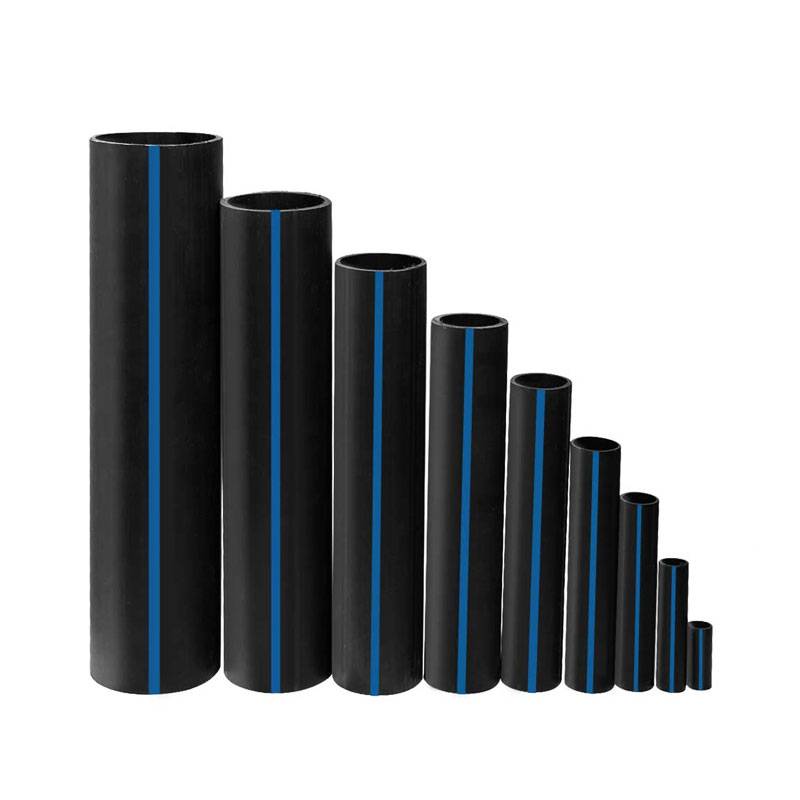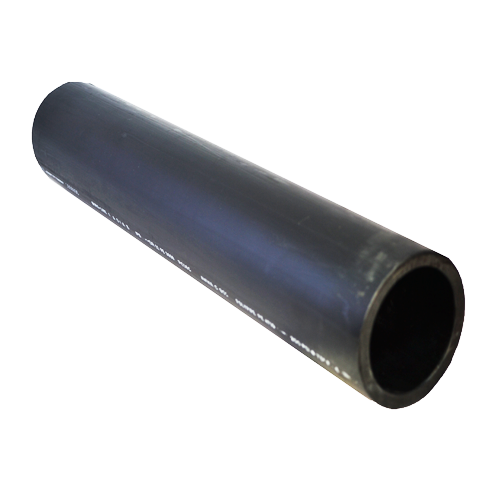Practical Overview to hdpe pipe fittings Midland TX and Their Uses
Understanding the Key Benefits of HDPE Pipeline for Water and Wastewater Administration
Using HDPE pipeline in water and wastewater administration provides numerous benefits that warrant consideration. Its extraordinary resilience and lengthy life-span make it a recommended option for several projects. Additionally, the product's resistance to corrosion and chemical damages improves its reliability in numerous settings. The benefits expand beyond simply longevity and resistance. Texas hdpe pipe manufacturer. Discovering its cost-effectiveness and ecological effect discloses a lot more engaging factors for its widespread adoption in contemporary framework
Extraordinary Toughness and Long Life

HDPE pipe attracts attention for its phenomenal sturdiness and durability, making it a recommended selection in water monitoring systems. Built from high-density polyethylene, these pipelines can endure substantial pressure and stress and anxiety, guaranteeing trustworthy efficiency in time. Their robust nature allows them to sustain severe ecological problems, consisting of temperature level variations and dirt movements, which can create other products to stop working.
The life-span of HDPE pipelines often surpasses 50 years, giving an affordable service for towns and industries alike. In addition, the material's lightweight residential properties streamline setup, minimizing labor expenses and timeframes. This longevity reduces the demand for regular repairs or substitutes, even more boosting its economic allure.
In water administration applications, the reliability of HDPE pipelines means less disruptions and boosted service continuity, making them integral to lasting facilities development. The mix of longevity and durability solidifies HDPE's duty as a foundation in reliable water management options.

Resistance to Deterioration and Chemical Damages
While lots of materials catch deterioration and chemical damage with time, HDPE pipes show impressive resistance, making them suitable for different water administration applications. This resilience originates from the molecular framework of high-density polyethylene, which is naturally non-reactive and does not rust like metals or break down from exposure to extreme chemicals. Because of this, HDPE is very effective in settings with aggressive materials, such as wastewater systems that may have acids, bases, and organic solvents.
In addition, HDPE pipes can hold up against ecological factors such as soil level of acidity and saline conditions, better improving their viability for diverse applications (American Plastics HDPE Pipe Manufacturing). Their capability to preserve structural integrity in time lowers the risk of leakages and failings, which is important in ensuring the safety and security and reliability of water distribution and wastewater administration systems. Subsequently, the resistance to rust and chemical damages significantly adds to the general efficiency and long life of HDPE piping solutions
Cost-Effectiveness and Financial Advantages
When taking into consideration the financial implications of water management systems, the cost-effectiveness of HDPE pipes comes to be noticeable. These pipelines offer reduced installment and upkeep prices contrasted to standard products like steel or concrete. Their light-weight nature simplifies transport and installment, causing lowered labor expenditures. In addition, HDPE pipes exhibit a long lifespan, often exceeding half a century, which converts to fewer replacements and long-lasting financial savings.
In addition, the resistance of HDPE to deterioration and chemical damages reduces the need for pricey fixings and substitutes. The pipelines also support efficient water flow, decreasing energy prices associated with pumping systems. By mitigating leakages and water loss, HDPE pipes add to considerable economic benefits for districts and sectors alike. On the whole, the initial financial investment in HDPE piping can yield substantial economic returns over the concentric reducer life-span of the water monitoring system, making it a sensible choice for lasting facilities development.
Environmental Sustainability and Lowered Effect

Convenience and Adaptability in Setup
Because of their distinct residential properties, HDPE pipes provide impressive flexibility and adaptability in installation, making them suitable for a wide variety of applications. Their light-weight nature permits for easier handling and transportation, minimizing labor prices and installation time. HDPE pipes can be bent and shaped to fit different terrains and project demands, which is especially valuable in testing settings.
Furthermore, their resistance to deterioration and chemical damages permits for installation in diverse setups without the need for specialized protective finishes. The capacity to fuse joints creates a constant, leak-free system, enhancing the general stability and integrity of the installment. HDPE's flexibility also accommodates ground movement, decreasing the danger of damage in locations vulnerable to changing soil. Overall, these qualities make HDPE pipelines not just flexible however likewise a favored option for water and wastewater administration systems.
Often Asked Concerns
How Does HDPE Pipe Contrast to PVC in Water Management Applications?
HDPE pipeline provides remarkable flexibility, resistance to corrosion, and longevity contrasted to PVC. Its lighter weight promotes much easier installation, while its click for info long lifespan lowers substitute prices, making HDPE a preferred choice in water management applications.
What Is the Life-span of HDPE Pipes Under Normal Problems?
Under common problems, HDPE pipelines can have a life-span ranging from 50 to 100 years. Their sturdiness and resistance to rust add to their lasting performance in various applications, making them a trustworthy option for infrastructure.
Are HDPE Water Lines Recyclable After Their Solution Life?
Yes, HDPE pipes are recyclable after their life span. American Plastics HDPE Pipe for Oilfield. They can be processed and repurposed into brand-new pop over to this site items, significantly minimizing environmental influence and promoting sustainability within the sector, making them an environmentally friendly choice for piping solutions
What Is the Installment Process for HDPE Pipeline?
The installation procedure for HDPE pipes involves website preparation, trenching, pipeline blend or mechanical joining, backfilling, and pressure testing. Proper strategies ensure a resilient and reliable system for delivering water and wastewater successfully.
Can HDPE Pipeline Be Made Use Of for Both Potable and Non-Potable Water Solutions?
Yes, HDPE pipes can be made use of for both safe and clean and non-potable water supply. Their convenience, durability, and resistance to rust make them suitable for numerous applications, guaranteeing secure and reliable transport of water in different contexts.